by Barry Grossman (MINA contributor)*
The corner stone President Joko Widodo’s economic program is a simple plan to end Indonesia’s fuel subsidy and inject massive investment into transport infrastructure, with a particular focus on developing sea ports and the fisheries industry.
The fuel subsidy comprises less than 15 percent of the national budget, with few other government benefits provided to the public. The Jokowi government’s plan is to replace this undiscriminating product based subsidy with a system based on “individual specific” subsidies or, if you prefer, a welfare system, with the presumed cost savings being used for more pressing needs like infrastructure and industry specific support programs.
This fundamental and far reaching change was sold to Indonesians using news footage showing public servants handing out cash payments of IRP 400,000 (about USD30) to long queues of needy people who had already met the bureaucratic requirement of being registered as individuals in need.
Also Read: Saudi Arabia Wins Bid to Host World Expo 2030
It is unclear if or how qualifying individuals will continue to receive such assistance to set off the impact of skyrocketing prices. Unfortunately there was not much related public discourse about the merits of this radical new policy initiative.
A number of questions need to be asked about the Jokowi economic strategy.
1. Where is the pressure for eliminating the fuel subsidy coming from and what connection does it have with the IMF, the World Bank, or so called “free trade” initiatives being pressed through the US dominated Trans Pacific Trade Partnership and the World Trade Organization?
2. In the short term, who will benefit and who will lose as a result of this program and the consequential inflationary spiral?
Also Read: 148 Products from Indonesia Promoted at Sarawat Superstore Jeddah
3. In a nation comprising around 240 million souls, the vast majority of whom earn between USD 4 and 10 a day, how can moving from a product based subsidy to a person based welfare system achieve any significant cost savings, especially when the fuel subsidy to be scrapped is only about USD21 billion, an amount far exceeded by the genuine need of Indonesia’s poor underclass?
4. Given the corruption and bureaucratic red tape which characterises the Indonesian government sector, how can anyone believe that this move to a complicated needs based welfare system will produce any cost savings, or provide the same level of economic support which Indonesia’s working poor received through the fuel subsidy?
5. In the rest of the world, need based welfare programs are well on the way to being phased out entirely through budget cuts and the imposition of increasingly arbitrary and strict qualifying criteria. What reason is there to believe that it will be any different in Indonesia’s dysfunctional system of government which has rarely manifested any genuine concern for the poor?
6. Indonesia is widely recognised as being a country of “laws” without a functional legal system. The administration of justice in Indonesia is plagued by endemic incompetency, corruption and a system of almost feudal loyalties. Police, prosecutors, judges, and the legal profession are widely recognised as being dominated by an all powerful “legal mafia” and by several other industry specific mafias, through which cases as well as judicial outcomes are bought and sold like a commodity. How can anyone imagine that it is possible to reform Indonesia’s system of governance and strengthen its economy until Indonesia first fully embraces bureaucratic reform at all levels of government, especially in those institutions charged with administering Indonesia’s system of justice?
Also Read: Packaging Industry Supports Halal Ecosystem
7. Where will the capital investment for Jokowi’s infrastructure spending come from? How much will come from the World Bank or IMF? How much in the form of other government borrowing? How much private investment has been committed and how much of that is from outside of Indonesia? What concessions are being made in return for such commitments to invest in Indonesian infrastructure? These are all important questions, the answers to which will have a significant impact on Indonesia’s foreign debt, its economy, and the influence exerted by foreign interests in Indonesia.
8. With official corruption in public works programs still the norm rather than the exception, is it realistic to embark on such an ambitious public spending program before first dealing with the far more urgent problem of systemic corruption?
9. Plans to eliminate the fuel subsidy have already seen massive increases in prices which, in true Indonesian, fashion, seem to greatly outstrip the actual rise costs caused by repealing the fuel subsidy. In other countries, the government typically passes regulations to prevent speculation and profiteering from the imposition of new taxes or their repeal. No such precautionary measures appear to have been implemented here in Indonesia; why not? An inflationary trend connected with paring back the fuel subsidy has already been playing out for several years in Indonesia, as foreign based banks, insurance companies, and corporate retailers, continue their efforts to take over and dominate Indonesia’s retail and financial sectors. How will local manufacturers, retailers and small businesses be able to compete with this largely unregulated influx of well resourced foreign multinationals, as rising prices make their products relatively cheaper and put foreign companies into the position of being able to advance their competitive strategies at a profit?
10. Indonesia has long suffered from massive capital outflows through robber baron types who came by their wealth as a result concessions obtained in Indonesia’s system of feudal like loyalties and by in effect selling off Indonesia’s natural resources to foreign interests. Before rushing into an expensive and ill considered program of public spending on transport infrastructure, would it not be far wiser to clean house by making it the government’s top priority to impose temporary restrictions on the outflow of capital, while at the same time, making desperately needed bureaucratic reforms which aim to effectively reduce Indonesia’s rampant corruption and tax fraud?
Also Read: Indonesia-Japan Agree on Energy Transition Cooperation
With the world as whole now largely committed to elevating policy made by corporate funded think tanks above both party politics and the “rule-of-law,” surely it is time that Indonesia established its own publicly funded, non-partisan “think tank” in order to advance the interests of all Indonesians in policy making government affairs, rather than leave people with more questions than answers about radical changes like this scrapping of the fuel subsidy
How long will Indonesia continue to place its future in the hands of the IMF and the World Bank , to say nothing of the corporate interests which dominate US based think tanks like the CFR, the Brookings Institute, Rand Corporation and so many others? (T/BG/P3)
Mi’raj Islamic News Agency (MINA)
*This article was written for the Indonesian based international news service, Mi’raj Islamic News Agency (MINA) as requested by MINA Deputy Editor-in-Chief, Syarif Hidayat.
Also Read: Dubai Expo 2020 Holds Special Event for Palestine












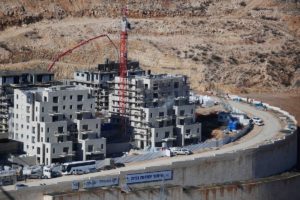
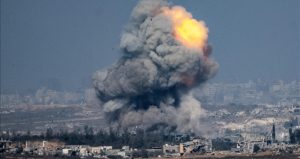

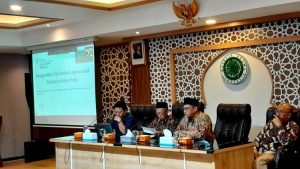
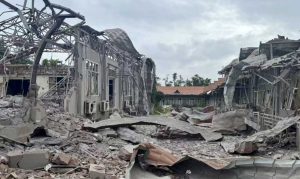
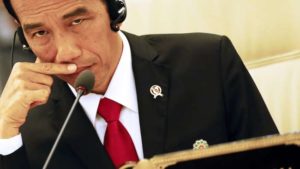





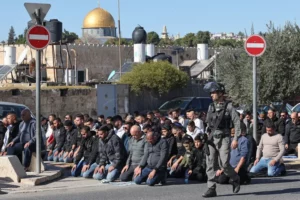




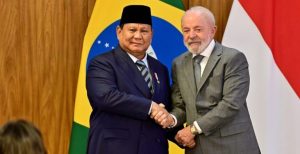




 Mina Indonesia
Mina Indonesia Mina Arabic
Mina Arabic